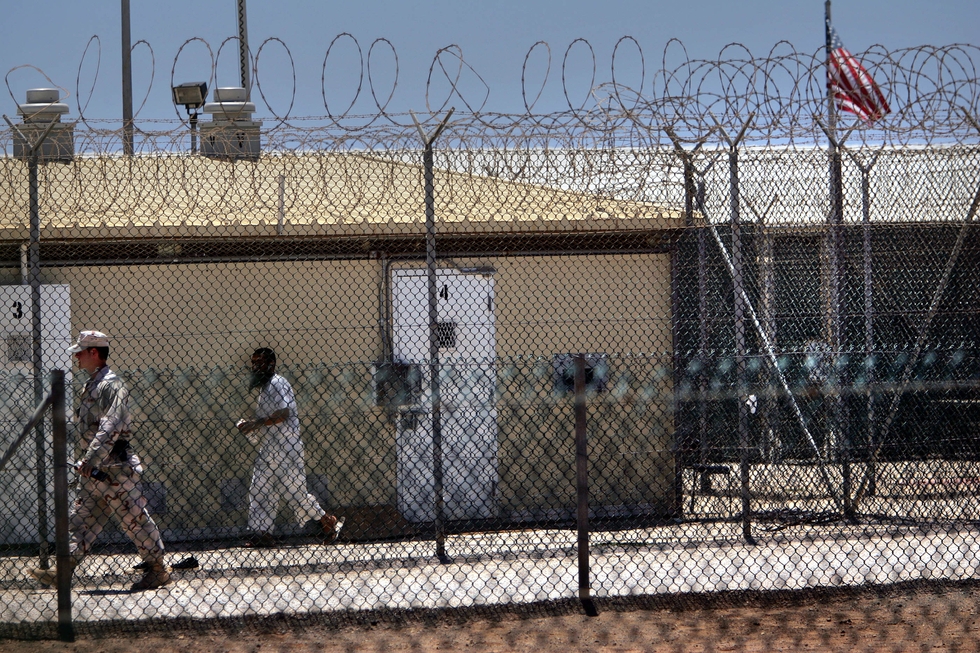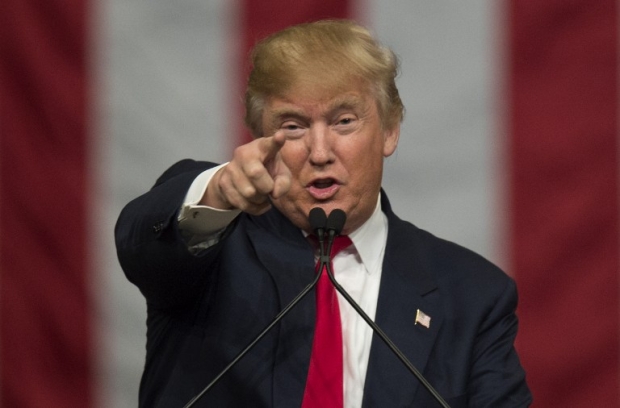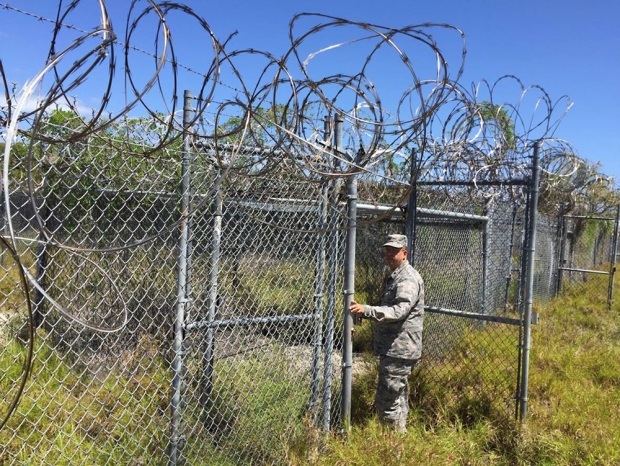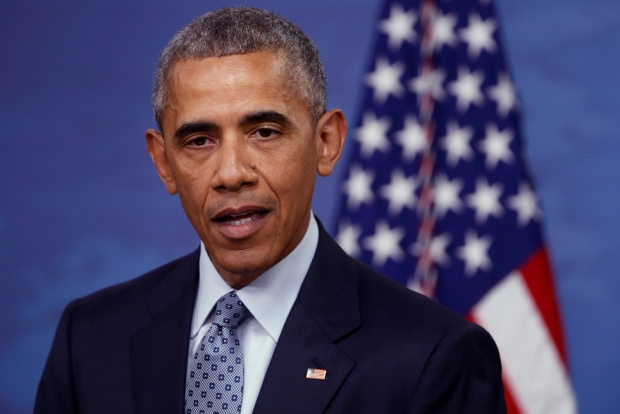Trump and Guantanamo Bay: Why he may find it a headache

NEW YORK, United States – Human rights lawyer Shayana Kadidal is such a frequent flier to the detention centre at Guantanamo Bay, Cuba, that he keeps a locker there. His trip at the end of October prompted an unlikely question: Is this my last visit?
US President Barack Obama had promised to shutter the jail for years. Before winning the election to replace him on 8 November, businessman-turned-president-elect Donald Trump spoke of expanding it to house more “bad dudes”.
“We thought that we might not be returning and considered emptying our lockers. Famous last words,” Kadidal, a lawyer on several post-9/11 cases for the Center for Constitutional Rights, a legal action group, told Middle East Eye.
“We ended up not doing it. My running shoes, my printer, are all there at the ready.”
Obama is struggling to fulfil his promise to close the prison at the US military base known colloquially as Gitmo, in part because of Pentagon officials dragging their heels and a Republican-run Congress banning the transfer of detainees to US-based jails.
Trump, who takes office on 20 January 2017, said he would expand the remote base and “load it up with some bad dudes” while also reducing its sky-high running costs, possibly by transferring some of its management to Cuban officials.
In an interview with The Miami Herald, he said he would support trying US citizens accused of terrorism there, though that would require Congress to change federal law and would likely face constitutional challenges.
Josie Setzler, a campaigner with Witness Against Torture, a pressure group, said that Gitmo detainees have had their hopes raised and dashed repeatedly these past 14 years, but Trump’s shock election win was a watershed.
“People are devastated, really,” Setzler told MEE.
“The prospect that we’re facing a brick wall with the inauguration makes us heartsick for the men that remain in Guantanamo and their families, but also for what it means for the rule of law and human rights in our country.”
The symbolism of Gitmo
Opened in 2002 as a makeshift camp to hold men captured in the early fight against al-Qaeda, Guantanamo became a symbol of Washington’s heavy-handed response to 9/11. It held some 680 men at its peak in July 2003, falling to nearly 240 when Obama took office in 2009.
'The prospect that we’re facing a brick wall with the inauguration makes us heartsick for the men that remain in Guantanamo and their families'
- Josie Setzler, Witness Against Torture
It still holds Khalid Shaikh Mohammed, who admitted to planning the 9/11 attacks. He faces trial by military tribunal with four other men, though proceedings have been mired in issues related to torture-like treatment in CIA custody.
Gitmo advocates say it keeps killers behind bars. Critics say it violates rights by holding men indefinitely without charge, it feeds anti-US sentiment abroad and detainees could be held more cheaply in jails on the US mainland.
On Monday, Obama said he had “greatly reduced the population” at Gitmo but has “not been able to close the darn thing” thanks to Congress. More transfers “may be taking place over the next two months", he told reporters.
“My strong belief and preference is that we would be much better off closing Gitmo, moving them to a different facility that was clearly governed by US jurisdiction. We’d do it a lot cheaper and just as safely.”
He also warned Trump “that there are all these rules and norms and laws, and you got to pay attention to them”. Analysts predict that when Trump takes office, he will inherit between 25-40 detainees.
The attorneys general of Colorado, Kansas and South Carolina wrote to Trump this week to reiterate their opposition to housing detainees on US soil - especially their three states, which are would-be relocation sites.
What Trump's policy on Gitmo may be
Guantanamo was a minor campaign issue and Trump has not discussed plans since winning the White House. Nevertheless, his campaign trail proclamations have been pored over for hints of a future policy direction.
Trump’s call to “load it up” with new inmates and reintroduce waterboarding may be rhetorical. The US no longer has big ground operations overseas and the chance of it playing gaoler to large numbers of Islamic State (IS) militants is slim.
According to Kadidal, Trump-style anti-terror measures would more likely resemble the CIA’s closed-down system of “extraordinary rendition”, which saw detainees flown to covert black sites for torture or interrogation.
“That is a much more likely scenario than taking bad dudes and moving them to Guantanamo because there’s already a little bit of sunlight shining on Guantanamo, based on the fact that lawyers can get there,” Kadidal said.
Trump ranks among the right-wingers who are “into the symbolism” of Gitmo, she added.
“It’s symbolic and it’s kept open as a reminder to the world that the US will go outside the law to address the war on terror, and many think that’s a good message to send. Ultimately, I think it’s a self-defeating message,” Greenberg added.
'It’s symbolic and it’s kept open as a reminder to the world that the US will go outside the law to address the war on terror'
- Karen Greenberg, academic
She also speculated that were Trump to fulfil another Republican wish of cutting state spending, he may find it easier to persuade his colleagues of the merits of a Gitmo shutdown than Obama, a rival Democratic politician.
“Right now it costs $7.5 million per prisoner per year at Guantanamo. That’s American taxpayer money for individuals who, if brought to the US, would cost between $70-$100,000 a prisoner. That’s a big difference,” Greenberg told MEE.
“I’ve never understood why Americans don’t trust their prison system to keep people from breaking out. I’ve never seen any prisons or Guantanamo Bay be a target for a terrorist group.”
New MEE newsletter: Jerusalem Dispatch
Sign up to get the latest insights and analysis on Israel-Palestine, alongside Turkey Unpacked and other MEE newsletters
Middle East Eye delivers independent and unrivalled coverage and analysis of the Middle East, North Africa and beyond. To learn more about republishing this content and the associated fees, please fill out this form. More about MEE can be found here.







